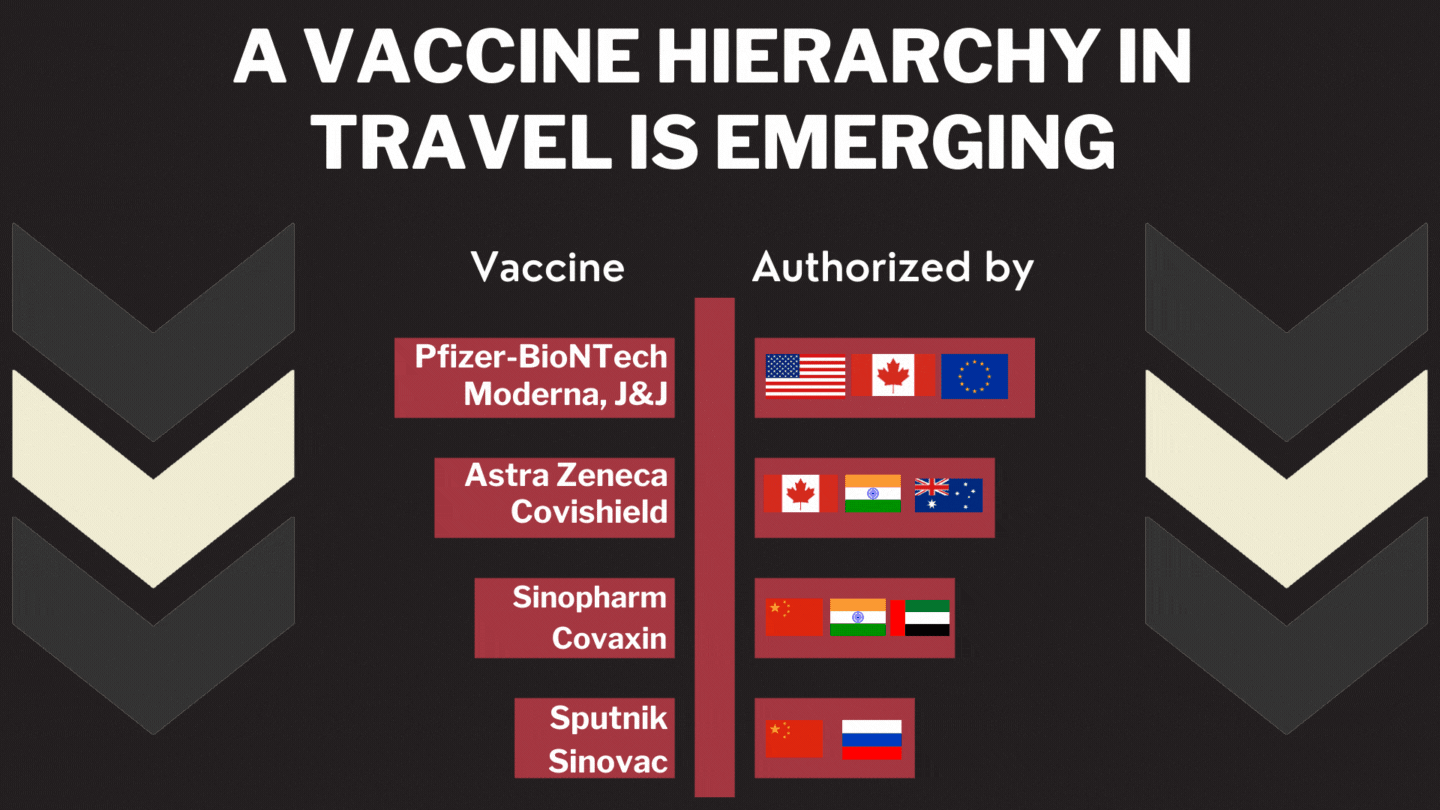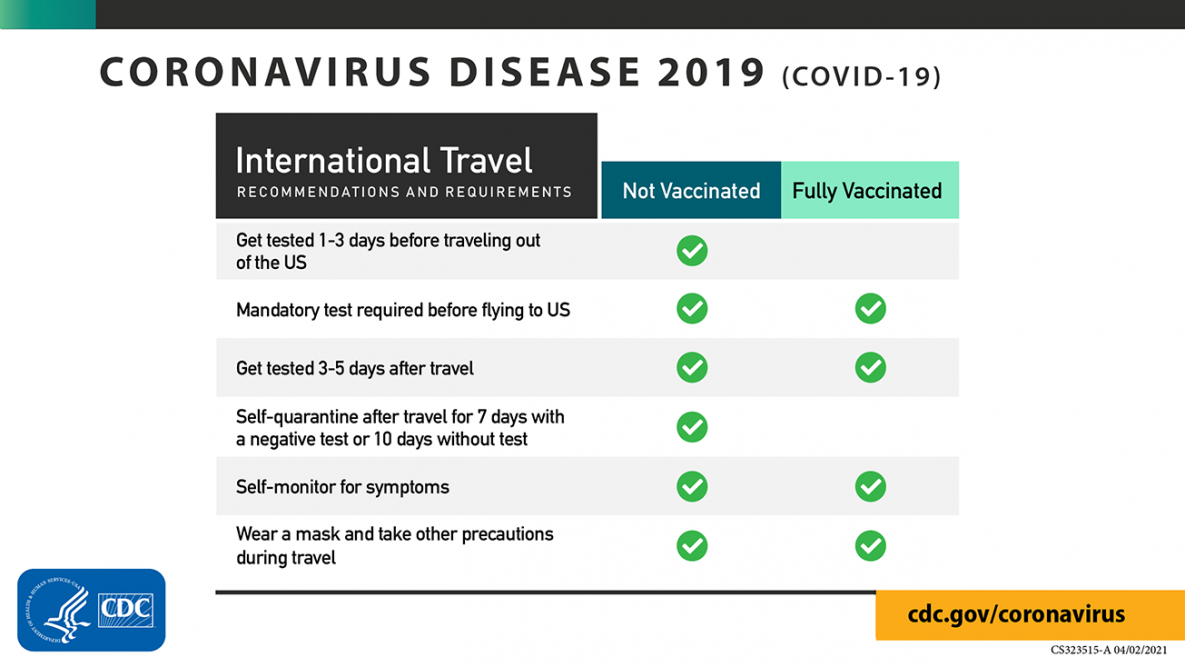Will Canadian, European and Latin American travellers have a problem when travelling to the USA because they have the ‘wrong’ vaccine?
We’ve asked this question as we’re seeing a growing travel vaccine hierarchy develop, a trend we first predicted in our COVID briefings in October.
 A first sign of this comes from Ireland.
A first sign of this comes from Ireland.
The UAE and much of the Middle East uses the Sinopharm vaccine.
Though it appears to show reasonable efficacy, a Sinopharm jab won’t allow returning Irish expats from Abu Dhabi or Dubai to skip hotel quarantine.
According to The National newspaper, they will need to pay €1800 to stay in a quarantine hotel for two weeks, as Sinopharm is not EMA approved.
In contrast, an Irish expat coming back from the US with two jabs of Pfizer-BioNTech will be able to isolate at home and not at a hotel, as that vaccine of course does have EMA approval.
Will Canadians crossing the border be told to quarantine?
In fact, it’s US travel which could lead to the greatest problems. Though CDC guidelines say that quarantine isn’t necessary if you’ve been vaccinated, this applies to FDA approved vaccines.
At the time of writing that’s Pfizer-BioNTech, Moderna and Johnson & Johnson.
So as things stand now you could imagine a situation where some European and Canadian travellers show up at the US border and are told to quarantine.
That’s because AstraZeneca, in use in Canada and Europe, is not yet FDA approved.
That may change. AstraZeneca still claims it will apply for FDA approval, but it has been saying this for a while.
Even though figures from the UK show this vaccine to be effective after one dose, the mood music around the AstraZeneca vaccine has not been good, due to reporting mishaps and some countries restricting use due to a very low risk of blood clots. And of course, the USA doesn’t even need it anymore, due to existing stockpiles of other vaccines.
If there’s no FDA approval, it’s possible that the Canadian, UK Governments and EU could agree mutual vaccine recognition for travel with the USA later in 2021.
But that’s much less likely to occur for Chinese and Russian vaccines, which presents problems for travellers from much of Latin America. For example, Chile is using the Sinovac vaccine (which shows some of the lowest efficacy levels), while the Russian Sputnik V vaccine is use in Argentina.
We’re already seeing vaccine tourism from Latin America to the USA, this trend could accelerate when many realize that they may be in line for a vaccine that won’t allow them easy access to the United States.
So what’s the solution? This is an issue that’s not getting much exposure, but it needs to be talked about much more.
Not only could it lead to all sorts of problems at borders, it presents issues of added complexity for airlines as vaccines become the new visas. To prevent that happening, we recommend advocacy at an industry level, with a push to make any WHO approved vaccine valid for international travel.

